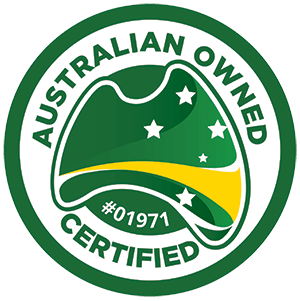Building incoming links to your website is a common off-page search engine optimization (SEO) strategy used by most webmasters and online marketers. The point of link building is to build up your authority to the search engines so that you can get more traffic to your website. But the problem with link building is that enthusiastic business owners use erroneous and misguided efforts to build up links that cause more harm than good.
Common mistakes in link building are:

1. Not using keywords in links – When you build up internal links on your website, it is important to use keywords in your anchor text, navigation text, and in any contextual links to other items within your website or even that link to outside websites. However, ensure that the keywords are not forced and are natural and make the content readable.
2. Signing up for too many social networks – If you’re not going to use the social network and the social network is not frequented by your target audience, there is no point in singing up. Getting links from inactive profiles will downgrade you with Google search. Sign up with social networks that you will use, and that your target audience uses.
3. Signing up for random bookmarking sites – Be sure that any bookmarking site that you sign up for is creditable and used by your target audience. Don’t just follow a list and sign up for them all or use them all. Be targeted in your use of these resources.
4. Avoiding “nofollow” links – We definitely want “dofollow” links, but avoiding posting and participating in places that have “nofollow” links is not a good idea because then you seem too practiced in your participation. Both types of links send traffic to your site; one just prefers bots to humans. You want humans to your site so do not avoid “nofollow” links.
5. Not getting rid of the blogroll – The links on the side of your blog, and the “blogroll” specifically, need to be eliminated. This is because by linking out to anyone you’re automatically recommending them, and thus giving away some of your traffic. It’s fine to do this, but link within your blog posts and text to people and products you recommend instead.
6. Putting too many links in the footer – All links are not created equal, and search engines in particular see links in footers as unequal to links within the text of your website or blog. Footer links should be used only for navigation to help the human, not for search engine page rank. Too many links in the footer can also make a page have too many links. It is recommended not to have more than 100 links on any given page.
7. Not following commenting etiquette – When you comment on another person’s forum, blog post, or article, it is important to follow basic rules. These include making a valuable comment, not just saying “good job” but really contributing to the discussion with a thought-out comment, and not putting links inside your comment. Comments should not be seen as self-serving in nature.
8. Trading links with others – While it can be difficult to say no to people who ask to trade links, it is imperative that every link that goes out of your website be of value to your customers and to you. If someone has a good product you can recommend that is not in competition with your products, ask for an affiliate link.
9. Using auto-approved directories – All links to your site are not created equal, and auto directories are bad ideas because there is no human being checking to see if the site is legitimate. Therefore your website and business could be lumped in with a bunch of spammy websites that are just trash. Why would you want to do that? Choose a directory that humans monitor, and which is relevant to your target audience.
10. Using random article directories – Article marketing is not dead, but it has changed. What is most important now is quality, relevant content that links back to your website in a natural way. Try guest blog posting, and posting only on relevant magazine like places that provides content, products and services to your target audience.
By paying attention to these ten link-building mistakes, you’ll be able to create a link-building campaign that really works to build traffic to your site in a good way. After all, you don’t want tons of traffic; you want massive, relevant traffic that consists of people who want your products and services. They way to accomplish that is by being aggressively picky about where your links go.






